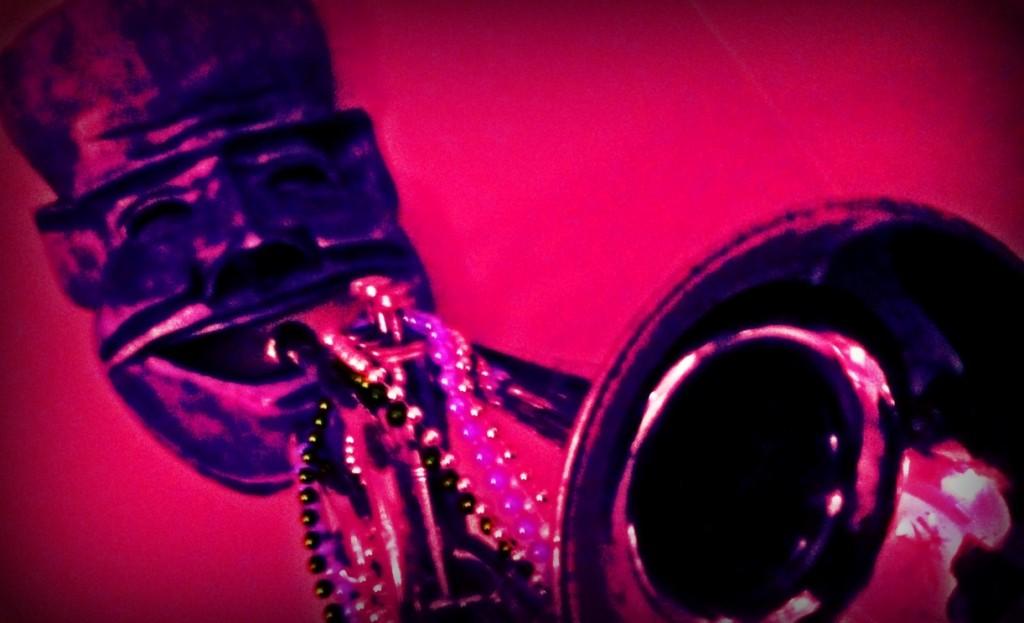
By Adam Blakemore
Since the establishment of the Catholic Church, Lent, the five weeks before Easter, is one of the most religious and revered parts of the year. Ash Wednesday, the first day of Lent, is the ceremony of the consecration of ashes made by burning the blessed palms from Palm Sunday. The ashes are then drawn in the shape of the cross over members of the Catholic Church, which is seen as one of the most full blessings received throughout the year.
The day before Ash Wednesday is one of the biggest parties of the year, called Mardi Gras. Mardi Gras translates as Fat Tuesday, and for good reason. It is the day that Catholic families use all of the foods in their pantry that are not allowed to be eaten during Lent, such as sugar, flour, and meat. In many places, the main one Marbeing New Orleans in Louisiana, this has evolved into a raging party, complete with massive parades and seas of screaming tourists.
One of the main symbols recognized, the Mardi Gras beads, are tossed by the handful from the floats, sometimes with less then wonderful results. Due to the frequency of incidents, there are laws in place prohibiting any charges against the parade crew, caused by injuries from the flying beads.
Another common symbol are the masquerade masks, made popular when the French were the primary inhabitants in the area, as masked dances were very popular in Europe at the time. There are also rumors that the masks are worn to disguise themselves during this period of wild debauchery. Also this has no basis in religion like the rest of the holiday.
Mardi Gras is recognized as an official holiday now, and is celebrated frequently by non-Catholics. But the basis in fasting and purifying one’s body before Easter, and the coming of Christ is less known.



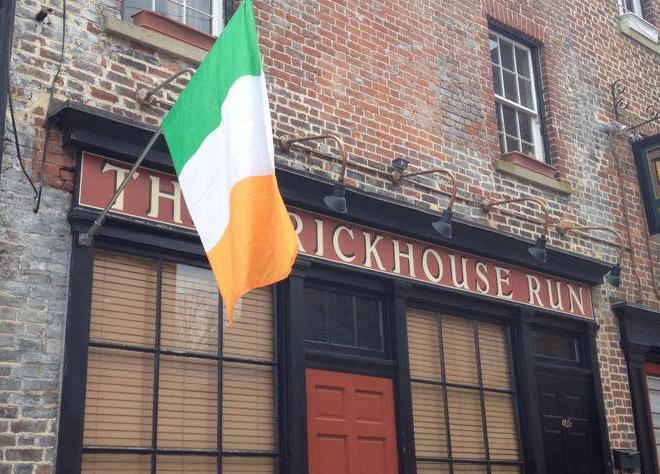









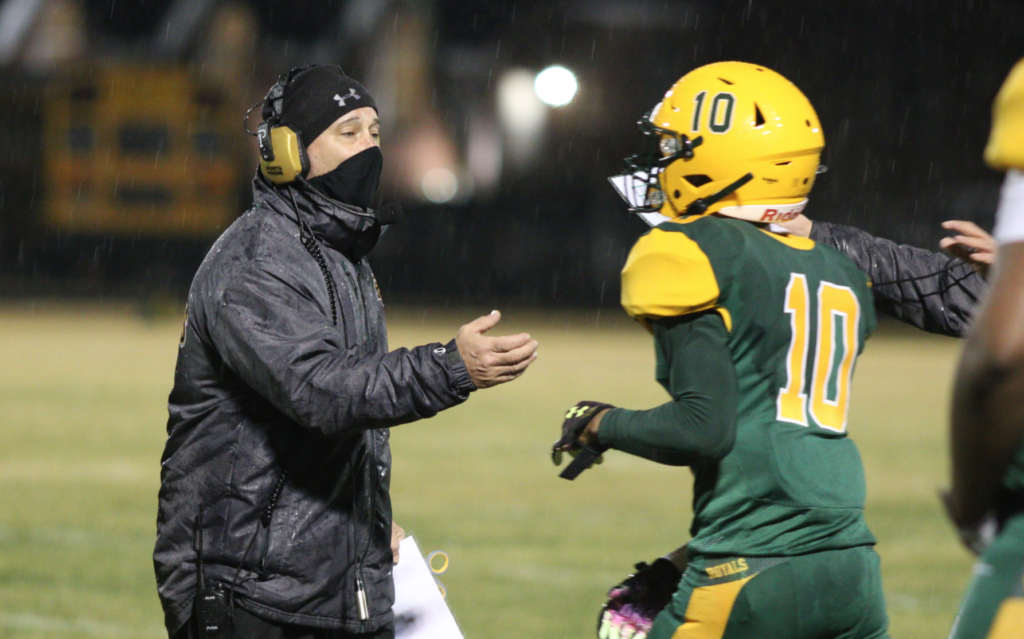



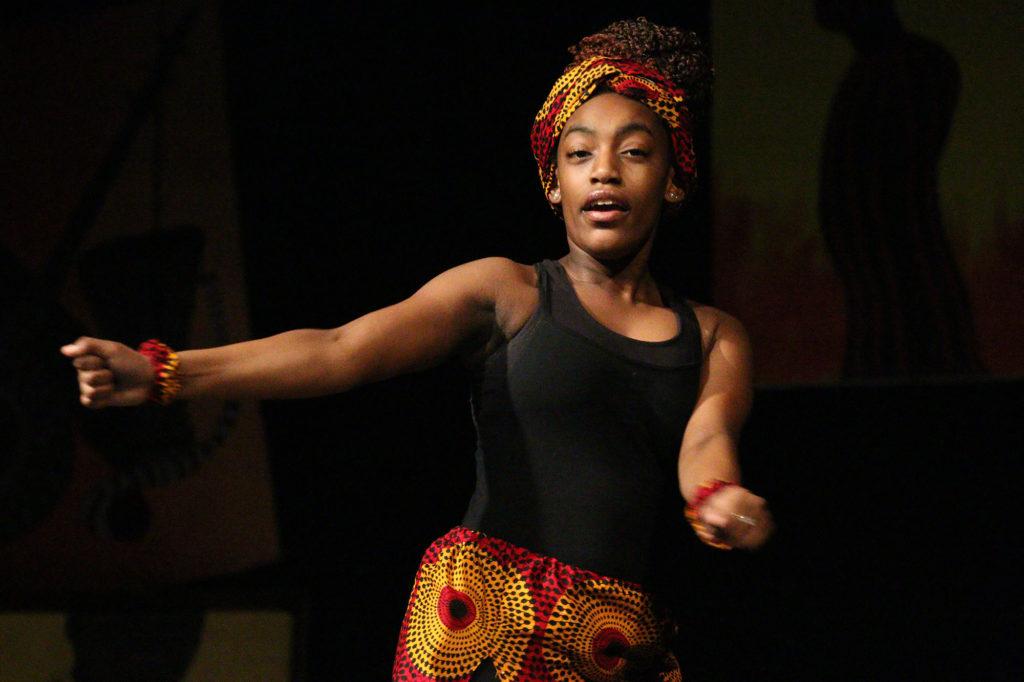
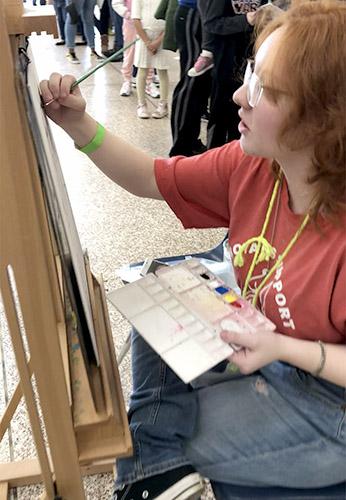
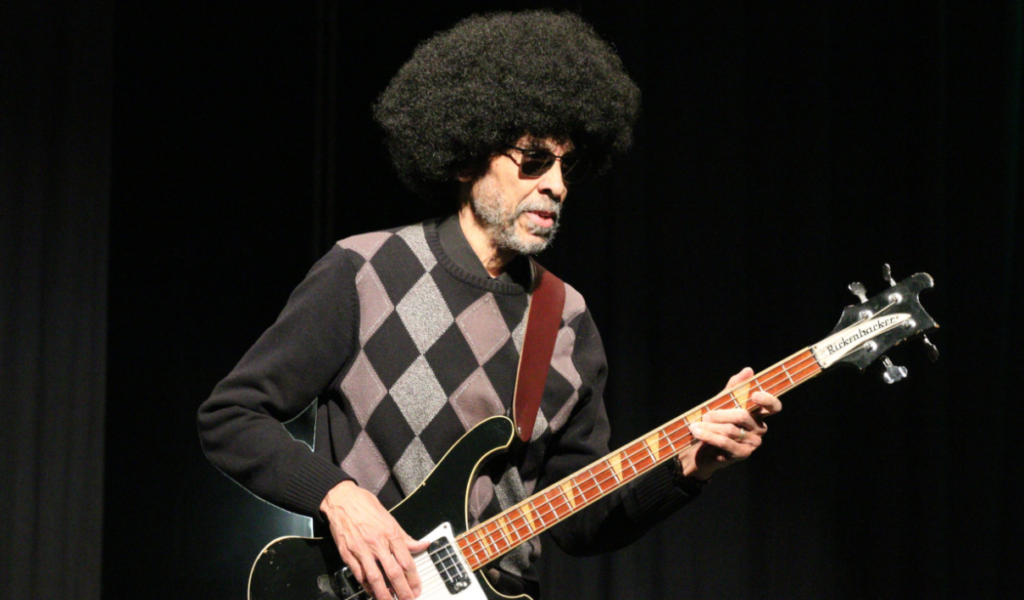




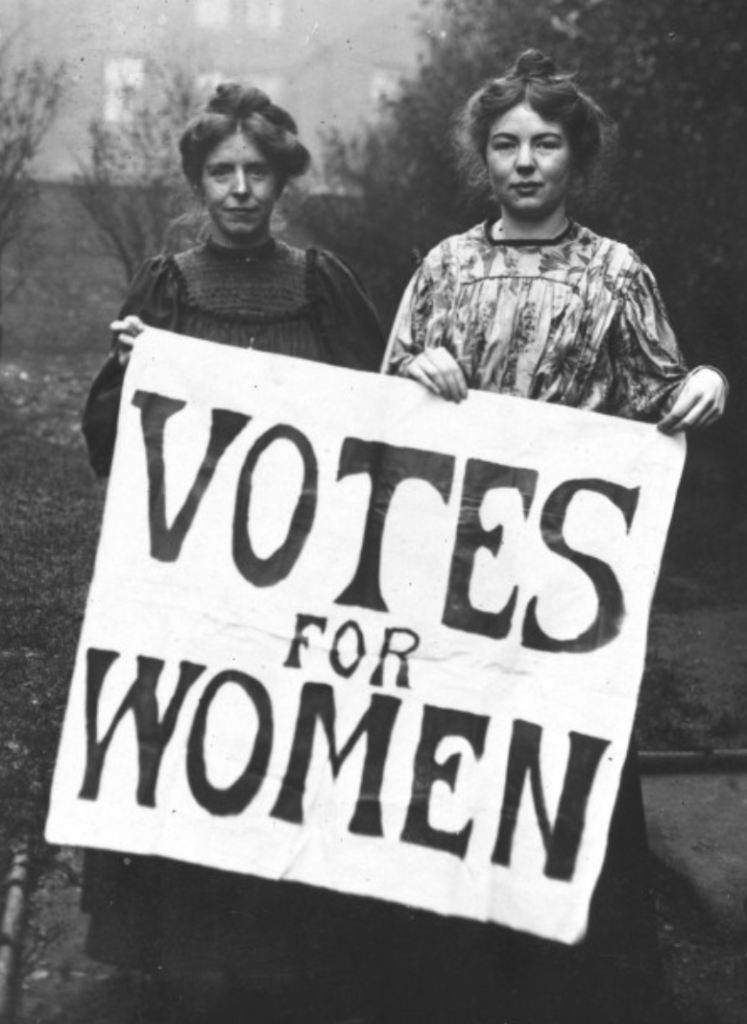



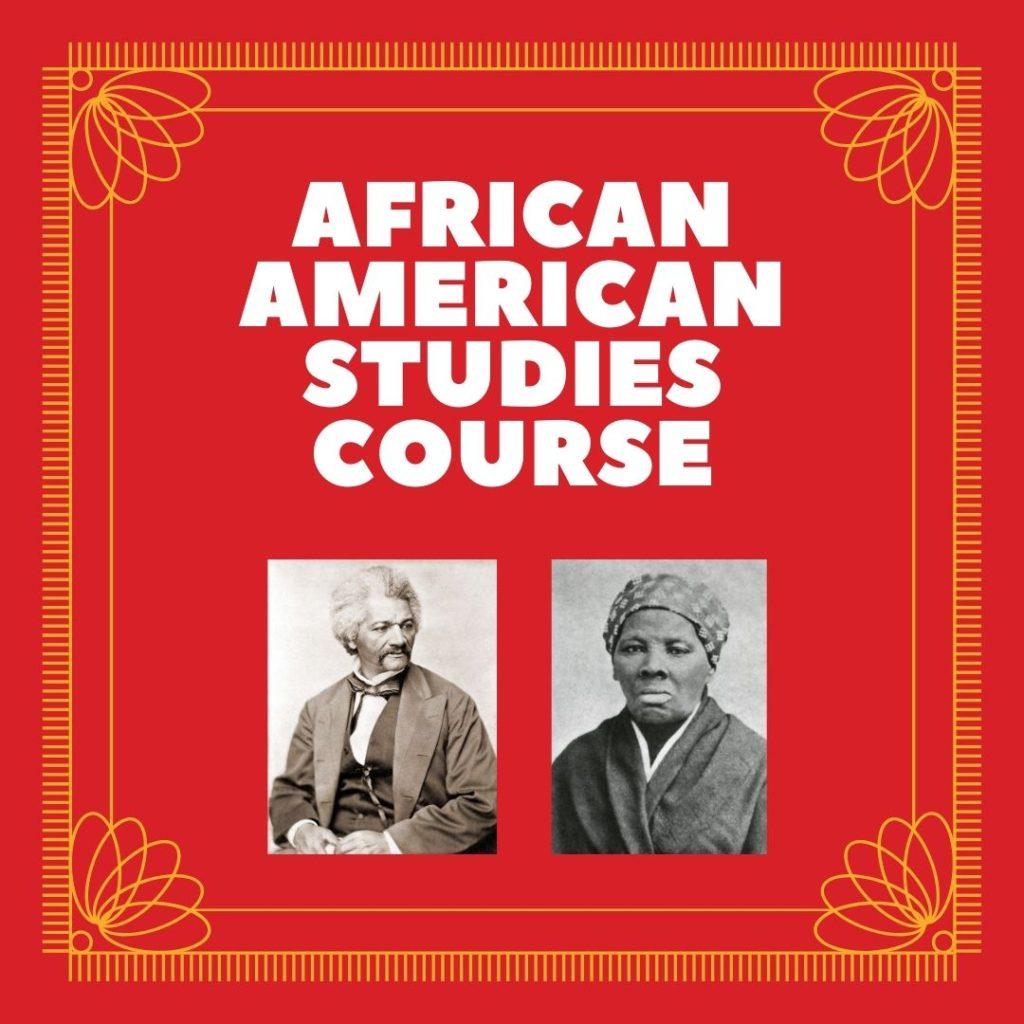
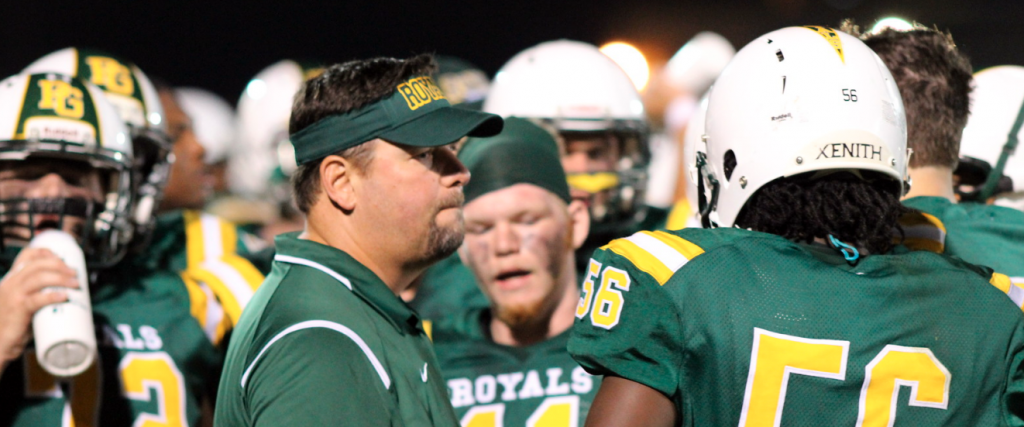





Tasia Faulcon • Mar 30, 2012 at 7:23 am
This article is very interesting and very informational. I wouls never have known that Mardi Gras had anything to do with religon if I had not read it. The information in this article enlightens people who may be catholic of their roots and also it is sort of ironic because many catholics believe that the sort of behavior in Mardi is not appropriate.
Conner Stevenson • Mar 30, 2012 at 6:53 am
Personally, I was very unaware that the holiday derived from the Catholic faith. It is really interesting to know that the celebration has religious roots. It would be interesting to know how many students or teachers had knowledge of this before the article.
Jack Semrau • Mar 30, 2012 at 5:56 am
I actually have to admit that I learned something really interesting from this article. All i can say is keep up the good work and more interesting articles about random facts like these would be really cool to read. Maybe we could include that in the newspaper next year?
Kayla Hubert • Mar 30, 2012 at 2:30 am
It is important to really understand what the true meaning about Mari Gras. I am thankful to have Madam Bradshaw, who does a wonderful job explaining the true meanings and the origin of the whole thing. It is call Fat Tuesday because that was the last day that individuals ate meat. We also learned the origin of the names because Mardi is French. I hope that more people eventually become aware of the true meaning of the holiday.
Faven Butler • Mar 30, 2012 at 2:12 am
Before reading this article, I never knew that there were different days of Lent nor much of the other information based on the Catholic religion. Even though I am not Catholic, I believe it is important for students including myself to expand their knowledge based on other religions. It causes us to be open minded and appreciate different cultures around us. I though the article was interesting to read solely because of its distinct information.
Chloe Alexander • Mar 29, 2012 at 8:04 pm
This was an interesting read because I never knew that Mardi Gras derived from a Catholic tradition. It is a great holiday that has some religious reverence, but is not strictly for Catholics. Being a Presbyterian, there are similar traditions of lent, without the ash ceremonies, which I also had never really known about. It is always good to hear the background story of a holiday, especially one otherwise regarded as just a huge party.
Caleb Johnson • Mar 27, 2012 at 5:59 pm
Personally i know very litlle about madi gras and its relation with the catholic church. Religion is a very touchy topic in the highschool atmosphere but this article properly infroms a reader such as myself about the event and religios reasons for it. I do not participate in lent but i now respect those who do.
Krystin Treglown • Mar 27, 2012 at 10:47 am
I have participated in Mardi Gras in New Orleans before, and it is quite an amazing night! People all over come and celebrate. However, I really did not know the true meaning of Mardi Gras until I read this article. First off I honestly did not know it was connected to Lent. I also did not know it was obviously for eating all the food in one’s pantry that is not supposed to be consumed during Lent. Mardi Gras is celebrated by many young people such as myself, and now I actually know the true meaning to the celebration.
Megan Jonson • Mar 25, 2012 at 2:18 pm
I knew that Mardi Gras was connected to lent, however this article taught me many things I did not know about the holiday. I think it is good to see that TRN is taking an interest in such a religious holiday and educating the students about it. I think that this article can educate many people!
Jordan Thompson • Mar 25, 2012 at 12:47 pm
It was interesting to read that Mardi Gras is derived from the Catholics, that of which I did not know. I am not a Catholic however my mother’s side of the family is so I know a lot about Ash Wednesday and Lent. One of the things I think that should have been mentioned in this article was the fact that other denominations of Baptist participate in Lent as well.
Sarah Beth Howard • Mar 24, 2012 at 7:26 pm
Another point to be made is that Fat Tuesday is also called Shrove Tuesday. The palms that are collected the Palm Sunday the year before are burned on Shrove Tuesday and then distributed on Ash Wednesday. The ashes are put as a cross on each of the member’s foreheads as a reflective reminder of the Lenten season to come. However, Tuesday can be considered as important to Catholics as the entire Lenten season. Not only do we eat a lot, hence Fat Tuesday, but we also particularly eat a lot of meat on that Tuesday because between the age of 14 and 59 or so many Catholics can choose on not eating meat on Ash Wednesday and every Friday including Good Friday before Easter. Our church personally has a pancake supper which is a great fundraiser, but also allows us to have a little fun before Wednesday.
Amaya Ray • Mar 23, 2012 at 7:20 am
When I think of Mardi Gras all I think of is partying, getting beads thrown at me, and a ton of good food. I never knew there was a religious background to Mardi Gras. The part about the people cleansing their bodies for Easter makes alot of sense. Now I know what Mardi Gras is really about.
Olubusola • Mar 23, 2012 at 6:54 am
I personally did not know Mardi Gras was a spritual holiday when it first began. I think it’s sad and somewhat intresting at the same time to see that something religious has turned into one of the biggest “party” or parade of the year.
Matthew Schneck • Mar 12, 2012 at 5:15 pm
It is interesting to know that such a wild and extravagant party developed from religious origins. It is good to see that TRN is taking an interest in events that occur outside of our community as well. So often, Mardi Gras has been characterized as a huge party with no meaning; by bringing the facts forth, this article will help everyone better understand what the holiday is truly about.
Luke Humphries • Feb 26, 2012 at 10:34 pm
This article taught me alot that I didn’t know. I’m really glad that the writer took the time to write about how the popular holiday came out. I liked the information on how the holiday had changed over time as well, and how different cultures had added to it. It really helps give a better understanding of what Mardi Gras is really about.
Conner Stevenson • Feb 22, 2012 at 8:09 pm
This article is very informational. It really reveals that there is way more to the whole holiday than just tossing around beads and wearing green,purple, and yellow. It is great that the writer mentioned how it got started as well as the meaning for the whole celebration. Another great aspect of the article is how the writer included what the holiday means from a religious standpoint since it is after all derived from the Catholic church.
Kayla Bishop • Feb 22, 2012 at 2:45 pm
I learned something form this article that i had never known before and i think thats what a good newspaper article should do. The article was very well written it was very easy to understand and it didn’t go off topic.I never knew where mardi gras actually came from but now that i know the origin of it i now understand why some people say mardi gras instant really about partying. The one thing i do have to say is that I dont know if the last sentence should of been included in the article.